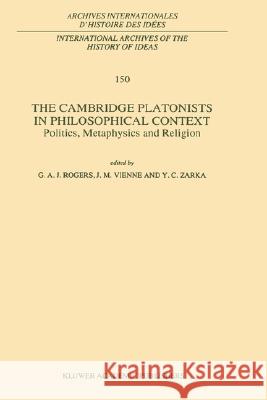The Cambridge Platonists in Philosophical Context: Politics, Metaphysics and Religion » książka
The Cambridge Platonists in Philosophical Context: Politics, Metaphysics and Religion
ISBN-13: 9780792345305 / Angielski / Twarda / 1997 / 258 str.
The Cambridge Platonists were defenders of tolerance in the political as well as the moral sphere; they held that practical j u d g e m e n t came down in the last instance to individual conscience; and they laid the foundations of our modern conceptions of conscience and liberty. But at the same time they ma intained the existence of eternal truths, and of a Good-in-itself, identical with Truth and Being, refusing to admit that freedom of conscience i m p li e d moral relativism. They were critics of dogmatism, and of the sectarian notion of "enthusiasm" as a source of illumination, on the grounds that both were disruptive of social harmony; they pleaded the cause of reason, in the hope that it could become the foundation of all human knowledge . Yet, for all that, they ma intained that a certain sort of mystical illumination lay at the heart of all true thought, and that human reason had validity only in virtue of i t s divine origin . They debated with Des cartes and took a keen interest in his mech- ism and his dualism; they brought the atomistic theories of Democritus back into repute; and they sought to provide a detailed account of the causality link ing all phenomena.











